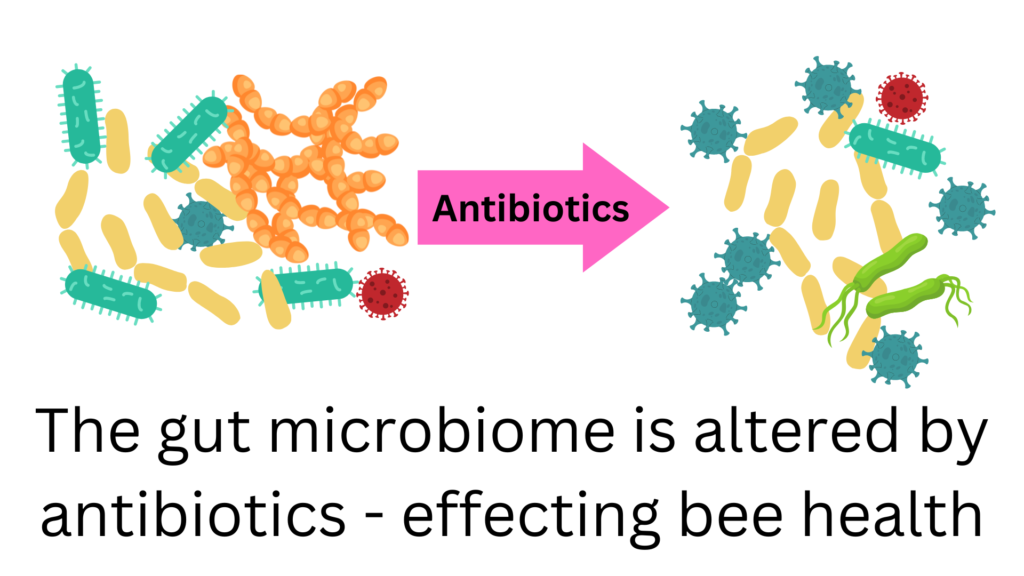In Australia it is permissible to use oxytetracycline to treat European foulbrood. A prescription from a veterinarian is required, and factsheets are available on how to provide the treatment.
While it is permissible, some factors against oxytetracycline use are the possibility of honey contamination (you must declare antibiotic use) and development of antibiotic resistant strains of the disease.
The bee gut microbiome is dominated by eight bacteria. Antibiotics disrupt the natural balance of bacteria.

Worker bees treated with tetracycline were half as likely to be found three days after being returned to their hive than bees that were fed only sugar syrup. They also were more likely to die in the lab.
Tetracycline use in Apis cerana (Asian honey bee) made them more susceptible to Israeli acute paralysis virus, but this effect was not seen in Apis mellifera (Western honey bee). Whether antibiotics would affect the ability of our honey bees to withstand other viruses remains to be seen.
Tetracycline increases larval mortality and the cells of the digestive system are affected.
The gut microbiome plays a role in the production of honey and bee bread, and digestion of pollen.
Clearly there are many reasons to reconsider the use of antibiotics in your hives.
What are the alternatives?
- Replace a proportion of your brood combs each year
- Take care when transporting hives to reduce stress – at night with ventilation
- Ensure your bees have good nutrition
- Requeen your colonies regularly
- Use a barrier management system
- Ensure you and your staff are trained to detect disease
Further information
In this video Irene Newton, assistant professor of biology in IU’s College of Arts and Sciences, discusses her work on the honey bee microbiome and its importance to the lives of honey bee colonies.
Acknowledgements
- European foulbrood and its control, Primefact 1000 (2021) Elizabeth Frost, NSW DPI
- Antibiotic exposure perturbs the gut microbiota and elevates mortality in honeybees. Raymann, Shaffer & Moran (2017) PLoS Biology 15: e2001861
- Antibiotics-induced changes in intestinal bacteria result in the sensitivity of honey bee to virus. Deng, Yang, Zhao, Luo Yang & Hou (2022) Environmental Pollution 314: 120278
- Antibiotic treatment (Tetracycline) effect on bio-efficiency of the larvae honey bee (Apis mellifera jemenatica). Aljedani (2022) Saudi Journal of Biological Sciences 29: 1477-1486
- Saccharide breakdown and fermentation by the honey bee gut microbiome. Lee, Rusch, Stewart, Mattila & Newton (2014) Environmental Microbiology 17: 796-815
- This article was peer-reviewed by Kenya Fernandes and Theotime Colin.

